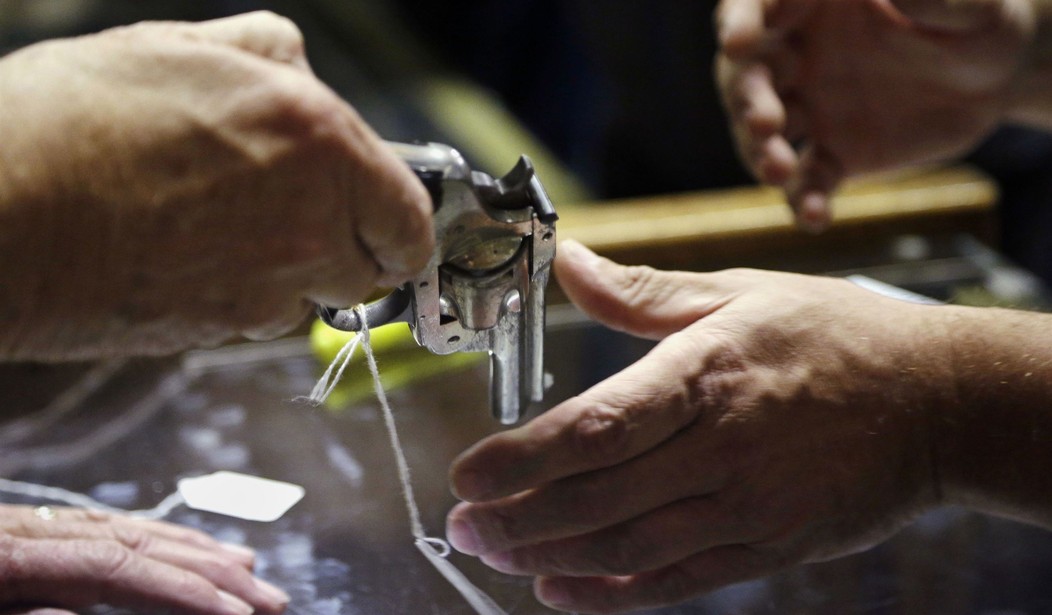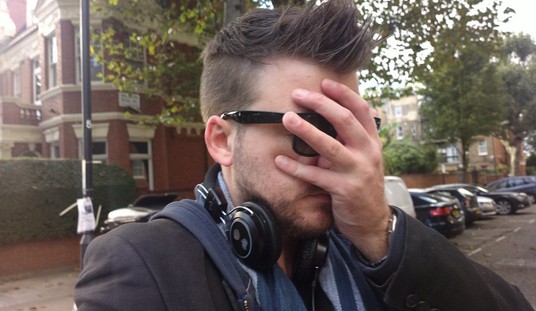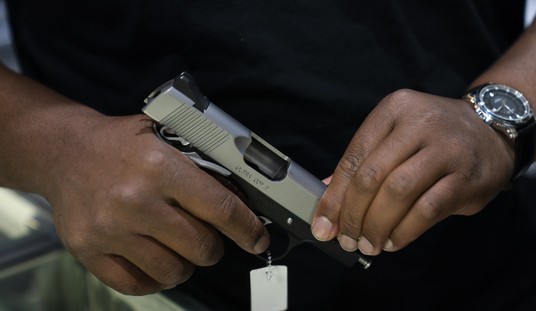In the United States, 26 percent of Americans suffer from some form of mental illness. It can be as simple as, say, a mild form of depression or it can be something severe like paranoid schizophrenia. Yet the term “mental illness” encompasses all of these people.
Now, when it comes to our gun rights, we have a mechanism in place to keep guns away from the very worst off. There’s a process for those who are concerned about a loved one, a process where they can be barred from purchasing a firearm legally.
However, we also have a country of hysteria in this country, one where some want to try and shape the narrative to revolve around outliers.
Take this individual who wrote an op-ed for the Washington Post. She suffers from mental illness and doesn’t think she should be allowed to buy a gun.
I have a history of suicidal feelings, and I was committed to a mental hospital in 2007 and in 2015. I absolutely should not own a gun. My entire body started to tremble.
“The Benelli sounds great,” I told him. He tried to hand it to me, and I just stared, my hands glued to my sides. “Here, try it out!” he urged. “The gorgeous Benelli Nova.”
Sweat dripped down my neck. “I’ve been in a psychiatric hospital,” I blurted. “We can work that out,” he reassured me.
“Twice,” I stuttered. “I’ve been in a mental hospital twice. I have a mental illness.”
He paused, looking me over as I stood there, neatly dressed in my favorite blue blazer and cream linen pants. “You don’t look like someone who is mentally ill.”
I don’t know what he thought someone who is mentally ill would look like, but of course, you can’t know a person’s mental health from a glance. And yet, a person’s mental health has everything to do with whether they should own a gun. Disturbed, I left the store without saying another word.
For someone who describes themselves as a mental health advocate, she’s doing an awful lot to continue stigmatizing people with mental health.
She, for example, has been suicidal. She’s terrified of it, probably because she lost family to suicide. I get that and I figure if she doesn’t want a gun, she totally shouldn’t get a gun.
However, there’s no mention of what kind of admission she had to the hospital. Was it voluntary? Was it involuntary? Was she adjudicated as being ineligible to buy a gun?
The fact that the guy at the gun store didn’t freak out–if it actually happened that way–should be taken as a win for mental health. People can be admitted to a psychiatric hospital for a number of reasons, many of which may only be temporary and should in no way infringe on anyone’s rights. Why should it?
While the author is trying to make the case that some people probably shouldn’t be able to purchase a firearm, what she’s actually doing is feeding into a culture of fear and hysteria surrounding not just guns but mental illness.
There are plenty of people who suffer from some degree of mental illness and yet are responsible gun owners. They live their life without any issue. In some cases, the weapons themselves may help them deal with their mental illness. I know when I’m feeling depressed, I can break my guns down and give them a good cleaning. The almost zen-like nature of the act takes my mind to a different place and, when I’m finished, I feel better.
I’m not alone on that, either.
The author finishes up with this:
My experiment taught me that our system relies heavily on individuals to tell the truth about their mental health histories. That is a lot of responsibility to place on a person experiencing mental distress. If I had been even slightly more determined to buy a firearm — if I’d just kept quiet in front of the shop owner, or clicked a different box — I would have one right now. At the end of the day, I went home without a gun. But I wish the law had stopped me.
However, what she fails to recall is that she never got that far along. She never filled out a 4473. She never underwent a background check. She walked into the gun store like any other customer and then got upset that the salesman didn’t freak out over her mental health history. She never went through with the final check we use to determine if someone is eligible to own a gun.
Without that, we don’t know if she’d have gotten the gun anyway. Anyone can walk in and pretend they’re interested in buying a gun, then leave after a mild freakout.
That’s not remotely telling of anything at all except that as an advocate for mental health, she kind of sucks at it. She’s feeding into the idea that people who suffer from mental illness are fundamentally incapable of functioning in our world, a world that includes firearms. She’s taking her own fears and somehow suggesting that those should be applied to all who suffer from poor mental health. That’s not that different than thinking that anyone who has depression can’t be trusted to be a reliable employee.
Frankly, mentally ill individuals deserve a better class of advocate than that.








